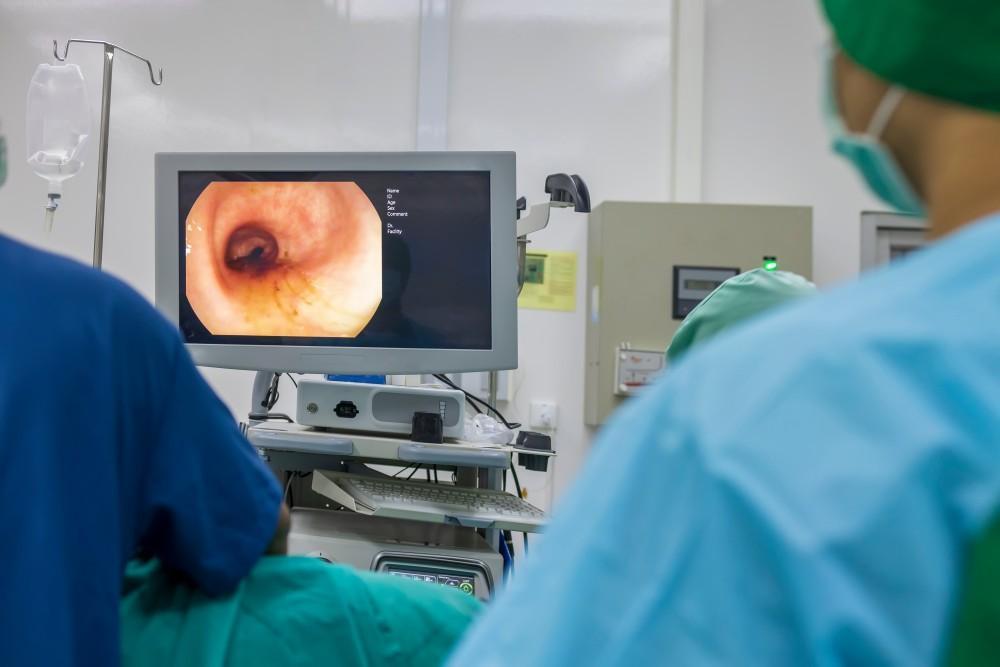
What Causes a Rectal Prolapse?

Your rectum has prolapsed (i.e. dropped) through your anus. At first, it only happens when you defecate. Now it sometimes occurs when you cough, sneeze, or otherwise put pressure on your diaphragm and pelvic floor.
Rectal prolapse is a fairly rare condition, affecting only about 0.5% of the adult population. Although it’s uncomfortable and embarrassing, it’s not a serious medical problem.
However, if you suffer from rectal prolapse, it can seriously affect your quality of life. In addition to feeling shame or helplessness, the condition may also lead to chronic constipation or even fecal incontinence.
In rare cases, a prolapsed rectum becomes stuck outside the anus and cuts off circulation to the rectum itself. This situation calls for emergency surgery.
Unlike hemorrhoids, which affect just one layer of the bowel near the anus, rectal prolapse can affect a much larger segment of the bowel. At first, it may retreat on its own after defecation. Later, you may need to push it back in. In severe cases, it can’t be pushed back, causing great discomfort.
At Colon and Rectal Surgeons of Greater Hartford, our colorectal experts and surgeons diagnose and treat rectal prolapse at our offices in Bloomfield, South Windsor, and Plainville, Connecticut. In most cases, we recommend surgery to re-insert your rectum and tighten the muscles that support it.
Do you wonder why you have rectal prolapse? Following are some of the most common reasons this disturbing condition may develop.
You’re female
Women over age 50 are six times more likely to develop rectal prolapse than men are. As you reach perimenopause and menopause, your body produces less of the hormone estrogen. Estrogen helps keep your tissues strong — including your bones, skin, and muscles.
You may notice that your skin has begun to sag as you’ve gotten older, or that your muscles aren’t as firm as they once were. The same process happens internally, too. The muscles of your pelvic floor — which hold your reproductive and digestive organs in place — weaken and sag.
In addition, if you’ve had multiple childbirths, the pressure that vaginal delivery puts on your pelvic muscles can weaken your rectum, too. In the past, doctors believed that multiple vaginal childbirths was the main driver in rectal prolapse. However, about 35% of female patients with rectal prolapse never gave birth; some are men, too.
Your genes did it
If one or more of your parents had rectal prolapse, you may be at increased risk to develop the condition. However, genes aren’t your destiny; you can develop healthy pelvic floor habits now to mitigate that risk.
Exercising regularly and eating a whole-foods diet helps to keep your muscles strong, including the ones that support your pelvic floor. Core exercises, especially Kegels and other pelvic floor strengtheners, may help you avoid rectal prolapse.
You have chronic constipation or diarrhea
According to the American Society of Colon and Rectal Surgeons, 30-67% of patients with rectal prolapse suffer from constipation. Another 15% have diarrhea.
Just as childbirth puts extra stress on the pelvic floor muscles that can lead to their weakening and prolapsing, so do bowel difficulties. If you have constipation, you might strain and push down while trying to evacuate.
Chronic diarrhea can also exhaust your pelvic floor muscles over time. Diarrhea may also be accompanied by inflammation, which can weaken your rectum and cause it to prolapse.
Your nerves or muscles were damaged
Even if you’re a man, if you’re or a woman who never gave birth, or if you never suffered from bowel difficulties, you could develop rectal prolapse after nerve or muscle damage. A car accident or other trauma, including surgery, can injure your pelvic floor and rectum.
In addition to trauma to the pelvic area and floor itself, a spinal injury can cause rectal prolapse. Your spine may no longer be able to send signals to your pelvic floor muscles to keep them tight and healthy. In rare cases, chronic coughing or sneezing can damage muscles and nerves.
You have an underlying medical condition
If you have a medical condition such as cystic fibrosis, you may be more susceptible to pelvic prolapse. Even an infection with intestinal parasites may be the source of your damaged pelvic floor and rectal muscles. Your colorectal expert conducts a thorough exam to determine why your rectum has prolapsed. They design a plan to help you function and feel better.
If you want relief from the embarrassment and discomfort of rectal prolapse, schedule an evaluation online today, or call us at the office nearest you (Bloomfield, South Windsor, or Plainville, Connecticut).
You Might Also Enjoy...


How a Colonoscopy Can Save Your Life

4 Signs You May Have Pilonidal Disease

Start the New Year Fresh with a Colonoscopy

5 Tips for Managing Your Crohn's Disease During the Holidays


